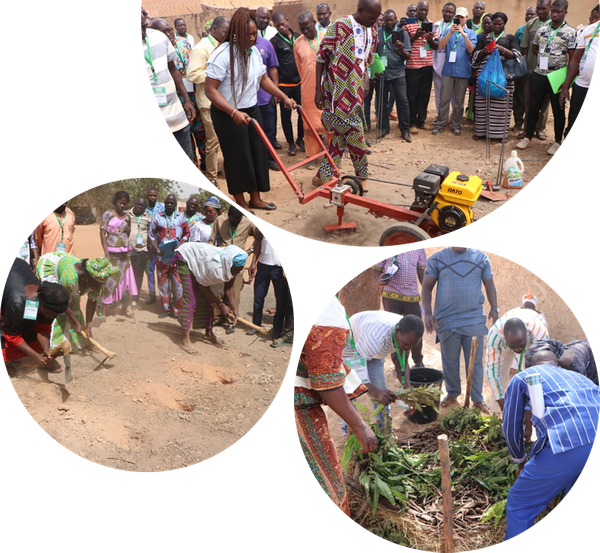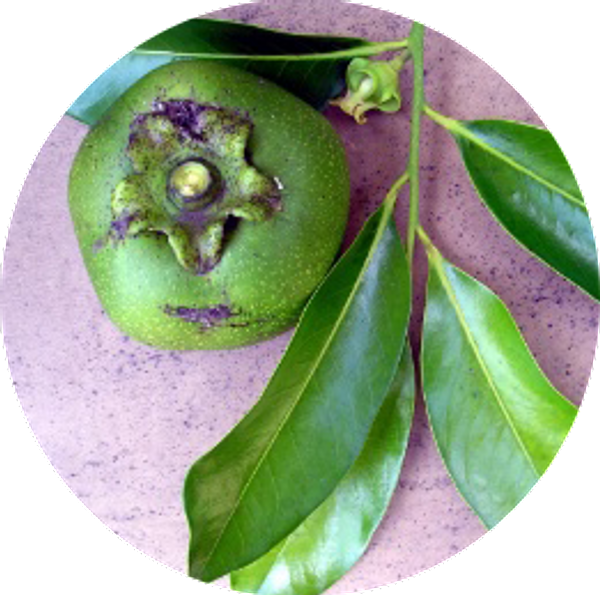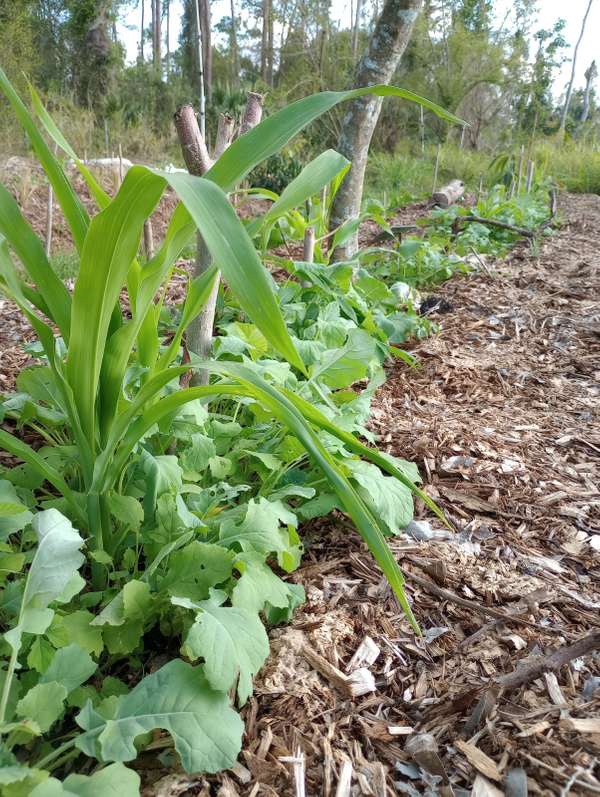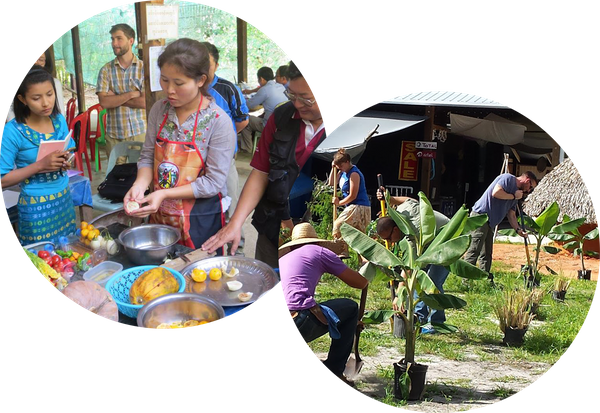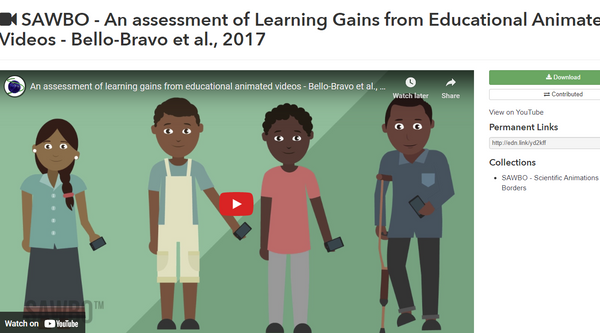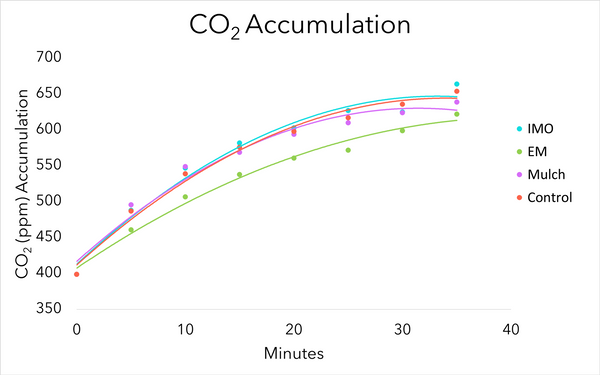ECHOcommunity Pembaruan
ECHO in Latin America and Caribbean: Biological depositories 2023-04-25
ECHO traveled to Huehuetenango, Guatemala, where small farmers produce export crops besides their families’ basic needs. Using Integrated Pest Management, farmers produce vegetables for foreign tables. Preventive practices are first then safe botanicals for pest management follow. Under Safe Use Protocols, approved agrichemicals are the last resort to save a crop. Biological depositories or “biodeps” provide safe disposal for excess mixtures and washing equipment including backpack sprayers. Biodeps are required for use as a Good Agricultural Practice, GAP for certifying small-farmer exports and export throughout the region and to the United States and Europe.
ECHO Asia update - farmer with disabilites 2023-04-11
ECHO Asia has had a busy year of training already in 2023! These training events past and upcoming include topics of seed saving, on-farm feeds, biochar, bio-sand filtration, and introduction to tropical agriculture development. ECHO Asia staff visited the partner organization Christian Center for the Development of Persons with Disabilities (CDPD Thailand) to talk about options for gardening and growing crops for those with disabilities.
Explore the Conversations about AT for those with disabilities
EDN #159 Now Available 2023-04-03
In this issue:
- Triage and Recovery of Small Fallen Trees
- 2022 ECHO International Agriculture Conference: Topic Summaries
- Echoes from our Network: Low Resource Control of Leaf Cutter Ants
- From ECHO's Seed Bank: Guazuma ulmifolia, a multi-purpose tree
- Books, Websites, and Other Resources: Trees with Edible Leaves by Eric Toensmeier
Triage and Recovery of Small Fallen Trees
Tim Motis and Luke Little
Excerpt:
Look for trees with intact trunks. A tree with a split trunk may be too unstable if righted. Also, look for trees with roots still attached to the trunks. If the root system is off the main trunk, there will be no way for the tree to take up water and nutrients. Lastly, look for trees that are small enough to be safely lifted upright by the human power and/or equipment available. Paint a unique mark or color on trees to be saved; this lets workers know which ones to focus their efforts on in terms of tree-saving.
ECHO West Africa Update 2023-03-28
ECHO West Africa's forum on sustainable agriculture this year was themed Producing and Consuming Organic, for the benefit of 135 participants. This forum is the result of the recommendations made by the participants of the sub-regional forum which took place in September 2022.
View Presentations from the Forum
The themes of the forum were addressed in the form of panels, allowing different speakers to make presentations around the scheduled themes, before moving on to practical workshops. The first day was devoted to the theme of the manufacture and use of organic fertilizers. This allowed ECHO trainers to present four different types of organic fertilizers before doing the practice to allow participants to master the different formulas. The theme of the manufacture and use of biopesticides was presented on the second day. This day allowed the panelists of the day to communicate around four formulas of biopesticides, both in theory and in practice. Finally, on the third day, the topics covered were the Foundations For Farming (FFF) method, the "Balo" program, and above-ground techniques. Time was also given to the NGO Practica to make a presentation on the "zainer", a tool designed to facilitate the digging of sowing holes within the framework of the FFF. Before closing, several participants expressed great enthusiasm for the training received.
For two years, our region, Diapaga, has no longer been supplied with organic fertilizer because of insecurity. Through this training, ECHO offers us a new hope for a revival of our agriculture.
- Ismaël Bonzi, Forum participant
Black Sapote Seeds - Now available for a limited time! 2023-03-21
Black sapote (Diospyros nigra) is also called chocolate pudding fruit or black persimmon. Fruits turn brown and soft when ripe. Fruits are eaten fresh, cooked in dishes, or combined with dairy products. ECHO staff and volunteers enjoy using the fruit to make black sapote bread or black sapote brownies. Seeds of black sapote do not store for long periods of time because they are recalcitrant and therefore are only offered from the ECHO Global Seed bank for a limited time each year. You must be an active development worker and a registered member of ECHOcommunity to order seeds. To learn more about black sapote, see ECHO's plant information sheet: Black Sapote.
From ECHO's Farm: Planting in Syntropy 2023-03-14
Earlier this February we established a Syntropic Agroforestry planting on the farm. Syntropic systems are characterized by high density plantings of food, biomass, timber, and support species. Not only are these designed to fill different strata in the canopy layers, but they are also meant to fill different strata at different times. This includes fast growing, “pioneering” plants in the canopy that will be coppiced (cut back), and longer-term, slow growing overstory species. This system even includes annuals in its succession plan. In the photo are emerging corn and cover crops interplanted densely with some of our biomass species of chaya, guazuma, gliricidia, bananas, and pink cedar (Acrocarpus fraxinifolius). These biomass hedges are punctuated by mango, coconut, and avocados. On either side of this tree row, we also have a row of biomass-producing support species that will be cut and mulched on top of the beds. In this case Tithonia and Fakahatchee grass. For more information on this type of system, and how to design a syntropic system see ECHO network member Roger Gietzen's Syntropic Farming Guidebook (free PDF download)!
Read more about Syntropic Agriculture
Restoring the Soil Second Edition - eBook Now Available! 2023-03-07
Roland Bunch's incredible catalog of smallholder farmer green manure cover crop systems is now available as an eBook! $4.99
During the last 35 years, green manure/cover crops (gm/ccs) have become recognized as an important agricultural technology. Millions of farmers use traditional gm/cc systems, and millions more now use systems developed and introduced during the last three decades. Faced with so many promising possibilities, even well-informed agronomists find it difficult to choose the best gm/cc system for a given situation. This happens in part because, unfortunately, many different factors must be considered in selecting the gm/cc systems. These factors include everything from local food habits, current market conditions, the dominant cropping systems, and the major weeds, to local economic needs, environmental conditions, and farmer preferences. Furthermore, the best gm/cc systems almost always include not just one, but several species of gm/cc.
Global Tropical Agriculture Development Courses in 2023 2023-02-28
ECHO is proud to facilitate courses about topics in tropical agricultural development. These series of courses are hands-on interactive learning experiences that are offered at ECHO's Florida and Asia campuses. The demonstration farms at these two ECHO offices provide an opportunity for immersive learning that directly applies what students are introduced to in the classroom.
The Introduction to Tropical Agriculture Development course is perfect for participants who are interested in adding agricultural components to their international work or for those recently starting in agricultural development in tropical environments. This course is held at both the Asia and Florida campuses:
ECHO Asia Introduction TAD course | March 27-April 1
ECHO Florida Introduction TAD course | July 10-14
Introduction to Tropical Agriculture Development prepares you for more in-depth courses ECHO offers on various topics such as seed saving and banking, appropriate technologies, livestock integration, and permaculture. This year, ECHO Florida is excited to hold the first-ever Tropical Agroecosystems course. Students will first be introduced to the 10 elements of agroecosystems and then apply these principles as they learn about different tropical agricultural systems such as conservation agriculture, sloping agricultural land technology, agroforestry systems, and more! Save the date: September 11-15, 2023
SAWBO videos now available here and on the ECHOcommunity mobile app in all languages 2023-02-21
Scientific Animations Without Borders (SAWBO) transforms educational information on relevant topics such as agriculture, animal and human diseases, and women's empowerment, into easy-to-understand animations. These videos are available in a diversity of languages from around the world including Spanish, French, English, and Kiswahili.
All SAWBO animations are made freely available to anyone wishing to use them for educational purposes. Animations can be downloaded and used on computers, tablets, cell phones, TVs, and overhead projection systems.
Now, you can access all of SAWBO's videos on ECHOcommunity.org and on ECHO's mobile app! Remember that once downloaded into your library, resources can be shared with friends using your preferred sharing app or method.
Natural Farming Research Note Now Available! 2023-02-14
Between 2017 and 2018, a trial was conducted comparing IMO, EM, mulch, and no mulch on a raised bed system on the ECHO Florida campus. Each of these main treatments was evaluated with and without NPK fertilizer in a split-plot, randomized complete block design. Less cotton was decomposed in the soil of the control treatment than soil of the EM soil drench treatment (P=0.0542) suggesting lower rates of microbial activity. Fertilized split treatments produced more grams of edible product than unfertilized split treatments (P<0.05). This study was conducted in a sandy soil with low organic matter. IMO or EM products may need to be “stepped up” to more stable carbon sources such as bran, compost, or manure before being utilized in soils low in organic matter.
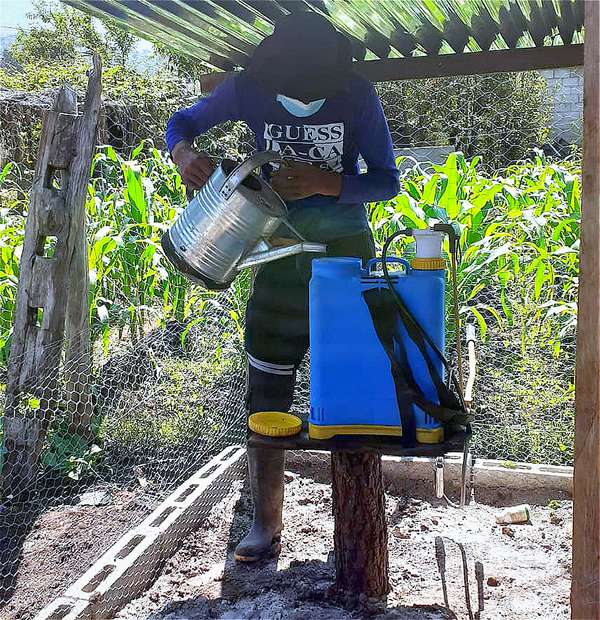

.jpeg?w=600)
